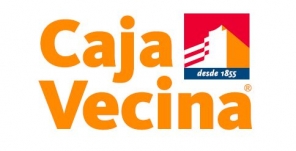

CajaVecina

Santiago Metropolitan Region, Chile
November 2016
Financial transaction processing
Service with Minor Environmental Footprint
Chile
CajaVecina is a Company that allows Chile to be a more inclusive country, by offering financial opportunities to those who don’t have access. They provide financial and non-financial solutions, that improve in a significant way, the quality of life of the people residing in their country. Before their founding, people from isolated communities needed to travel long distances and spend a significant amount of their earnings to run a small errand. They are now in every small town, city, and region of Chile making a significant change in the lives of the Chilean population. CajaVecina was founded with the goal of offering an innovative system that provides financial and non-financial solutions. However, their mission has always been more than that. They are a company that seeks to connect and to improve the lives of many who didn’t have a choice when it came to everyday errands, so insignificant to many but very important to others (the elderly, people in isolated and vulnerable communities, and people in cities with high population).
Overall B Impact Score
Governance 21.2
Governance evaluates a company's overall mission, engagement around its social/environmental impact, ethics, and transparency. This section also evaluates the ability of a company to protect their mission and formally consider stakeholders in decision making through their corporate structure (e.g. benefit corporation) or corporate governing documents.
What is this? A company with an Impact Business Model is intentionally designed to create a specific positive outcome for one of its stakeholders - such as workers, community, environment, or customers.
Workers 28.0
Workers evaluates a company’s contributions to its employees’ financial security, health & safety, wellness, career development, and engagement & satisfaction. In addition, this section recognizes business models designed to benefit workers, such as companies that are at least 40% owned by non-executive employees and those that have workforce development programs to support individuals with barriers to employment.
Community 20.2
Community evaluates a company’s engagement with and impact on the communities in which it operates, hires from, and sources from. Topics include diversity, equity & inclusion, economic impact, civic engagement, charitable giving, and supply chain management. In addition, this section recognizes business models that are designed to address specific community-oriented problems, such as poverty alleviation through fair trade sourcing or distribution via microenterprises, producer cooperative models, locally focused economic development, and formal charitable giving commitments.
What is this? A company with an Impact Business Model is intentionally designed to create a specific positive outcome for one of its stakeholders - such as workers, community, environment, or customers.
Environment 9.7
Environment evaluates a company’s overall environmental management practices as well as its impact on the air, climate, water, land, and biodiversity. This includes the direct impact of a company’s operations and, when applicable its supply chain and distribution channels. This section also recognizes companies with environmentally innovative production processes and those that sell products or services that have a positive environmental impact. Some examples might include products and services that create renewable energy, reduce consumption or waste, conserve land or wildlife, provide less toxic alternatives to the market, or educate people about environmental problems.
Customers 2.5
Customers evaluates a company’s stewardship of its customers through the quality of its products and services, ethical marketing, data privacy and security, and feedback channels. In addition, this section recognizes products or services that are designed to address a particular social problem for or through its customers, such as health or educational products, arts & media products, serving underserved customers/clients, and services that improve the social impact of other businesses or organizations.